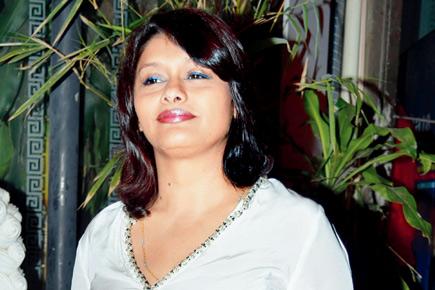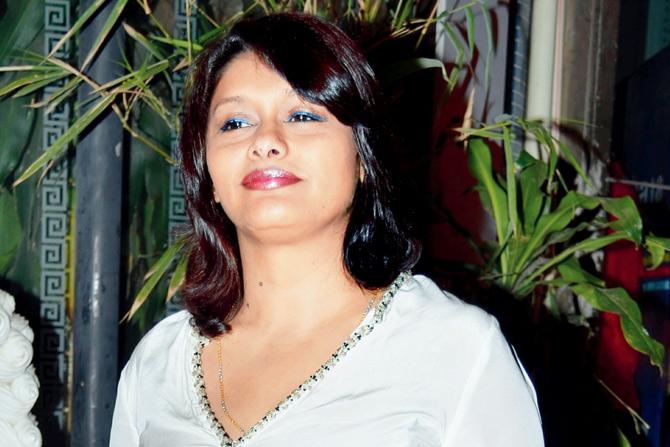On Women's Day, Pallavi Joshi talks about poor working conditions in the television industry, women's safety concerns and her small screen comeback

Pallavi Joshi
Q. You returned to TV after a decade. How does that feel?
A. It felt nice and some part of me had always missed it. When I came back, I realised what I had been missing. I didn’t do television because they have run-of-the-mill shows that continually churn out matter without second thoughts. But 'Meri Awaaz Hi Pehchaan Hai' is different. After doing weekly shows, I found a story which had a beginning and an end. It has 130-odd episodes. Otherwise, soaps just go on and on depending on what the audience likes, what the channel demands and how TRPs go. I have produced two shows, so I know.

Pallavi Joshi
Q. You are paired opposite a younger actor, Bhanu Uday. And you will be playing a mom to Amrita Rao and Aditi Vasudev. How do you make up for the age difference?
A. When I signed this, serial there was another actor opposite me who was my age. But I was shocked to learn that Bhanu would be playing my husband because I would look like his mother on screen. They made me walk on a tight rope for this one. On one hand I have to look 30-something and on the other, I have to look like Deepti Naval and Zarina Wahab's mother. In the late 70s, I had played a young Zarinaji in 'Khoon Ki Takkar', so I was skeptical. When I heard that I had to play her mother, I want to leave the serial right away. Whenever little Ketki does something wrong, I slap her on the face lightly. But I have to repeat the same thing with Zarinaji. I am a bundles of nerves thinking about it.
Q. Bhanu said you thoroughly supported him even when he gave a bad performance...
A. Bhanu is hardworking and passionate as an actor. I think his time at the National School of Drama worked wonders for him. Not all NSD passouts are talented. But he can switch between real life and stage with ease.
Q. As an executive member of Cine and Television Artists’ Association (CINTAA), is there anything that you dislike about the way the industry functions?
A. Working conditions in the industry are poor. We have the law of land here where all these foreign companies (read: channels) come where they find cheap labour and there are no work restrictions. Sometimes, you end up putting in a few extra hours, which is normal provided it happens once in a blue moon. Otherwise, there is no family life for anyone, especially if you shoot in places like Naigaon and Mira Road, and it gets late for the actors by the time they reach home.
Q. What do you think about women’s safety in the TV industry?
A. There is an issue regarding their safety but since there is no law, the producer is not obligated to give them conveyance. We are raising issues with the federation and I hope we come up with safety measures in near future. We got a complaint from a female artiste who found a hidden mobile phone recording her changing clothes inside a vanity van. I am still in a position where I have my own staff to make sure that my van is locked, but not everybody is privileged. I believe CINTAA is thinking of taking strong action against offenders. But the problem is that there are annual elections and members keep changing.
Q. How is the payment made uniform in the industry?
A. CINTAA has passed a law, making it binding on producers to give daily conveyance allowance to actors being paid less than Rs 5000 a day. There are different grades of actors and their rates change as per their job. Sometimes, junior actors make more than character actors. Also, there are actors who have taken a junior artiste association card despite not being extras. It is a sad state of affairs.
Q. What about producers who default on payment?
A. People not paying up, sometimes for over a year, is fashion. We often get such cases.
 Subscribe today by clicking the link and stay updated with the latest news!" Click here!
Subscribe today by clicking the link and stay updated with the latest news!" Click here!







